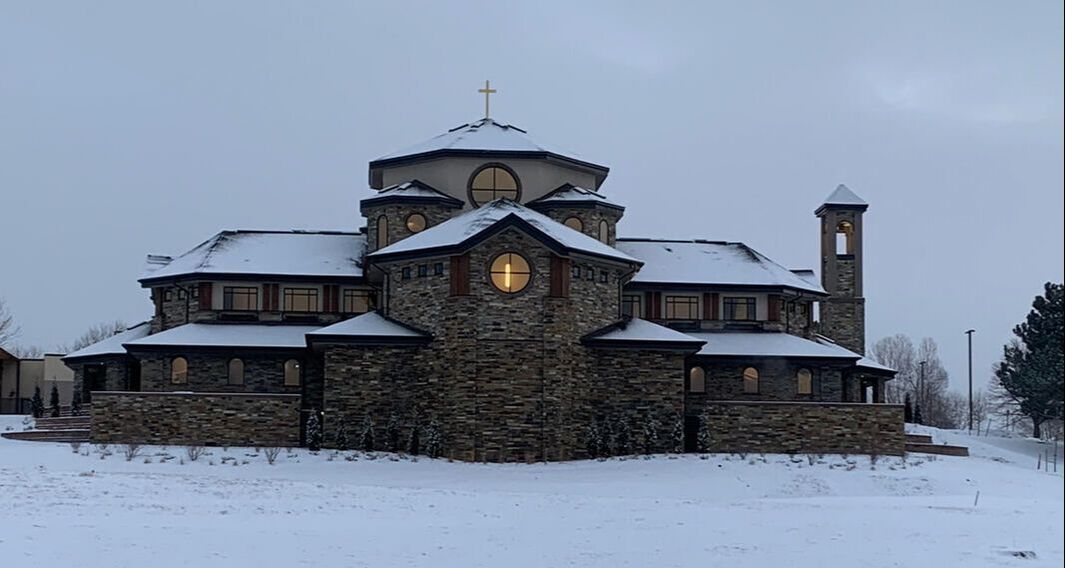The phraseology of "Lamb of God" can be further examined by studying the Passover, animal sacrifice as atonement for sin, and the triumphant victor represented in Chapter 14 of the book of Revelation.
Do we recognize Jesus as the "Lamb of God," the "Son of God," as revealed by John the Baptist?
Do we encounter Christ, the "Lamb of God," in other people? This is an especially pertinent question when we talk about encountering Christ at the local parish. How do we lift one another up in our journey of faith?
Do we encounter Christ, the "Lamb of God," in the proclamation of the Sacred Scriptures at Mass? Even if the homily is lackluster, do you still encounter Christ when the readings are proclaimed?
Do we encounter the "Lamb of God" in the Eucharistic sacrifice, and when we approach the table of the Lord to receive Holy Communion?
Do we recognize the significant role that Sacred Scripture has throughout the entire Mass.
The greeting at Mass echoes what we hear St. Paul say repeatedly to each Christian community he writes. What's more powerful? "Good morning." Or, "The grace of our Lord, Jesus Christ, the love of God the Father, and the communion, fellowship, and power of the Holy Spirit be with you." There is a reason why the rituals are established.
The Penitential Rite expresses our desire for mercy. It reminded me of the blind man calling out, "Jesus, Son of David, have pity on me!"
The Gloria brings the Choir of Angels to the forefront.
The three year cycle of readings brings us a lot of Scripture if we attend Mass every week. We typically hear an Old Testament reading, a responsorial psalm usually sung (from one of the 150 Psalms in the Old Testament), a reading from the New Testament, and then a Gospel reading.
The Creed expresses the twelve articles of faith found in Sacred Scripture.
The Eucharistic Prayer, especially the prayer of consecration, takes us to the upper room where Jesus commands us to "Do this in memory of me." We have been doing it since the beginning. Read paragraph 1345 in the Catechism of the Catholic Church and read the letter from St. Justin the Martyr written around the year 155 which is contained in that paragraph. It pretty accurately describes what we are still doing today.
We then echo the words of John the Baptist in each Mass. "Lamb of God, who takes away the sin of the world," have mercy on us and grant us peace.
Finally when we are invited to the table of the Lord, the host and chalice are elevated, and the priest boldly proclaims those words of John the Baptist. "Behold the Lamb of God. Behold Him who takes away the sin of the world." We are indeed blessed to be called to the supper of the Lamb.
Our response to this is also straight from Scripture. "Lord, I am not worthy that you should enter under my roof, but only say the word, and my soul shall be healed."
If we aren't encountering Christ in this ritual, we need to pray and study to try to enter more fully into this mystery of our faith.
So, on a practical level, let's look at this from the view of a three-legged stool. Those three legs represent prayer, study, and action. If we pray well at Mass, our personal prayer life will also grow.
We need to study. If we are content with an 8th grade understanding of our faith when we are fifty or sixty years old, do you believe we are missing anything along the way? Don't just study to grow smart. Study to grow in holiness. Let the knowledge about God support the journey to knowing God.
Finally, we can't just be hearers of the Word. We need to be doers of the Word. What is God placing on your heart right now to do for our world? How are you being called to be a faithful witness of Jesus Christ? Will you be an ambassador of Christ and be a beacon of light in a world that is often enveloped in darkness?
You are equipped for this mission. You do not walk alone. Remember, "The grace of our Lord, Jesus Christ, the love of God the Father, and the communion, fellowship, and power of the Holy Spirit is with you."
Have a powerful week walking humbly with your God!

 RSS Feed
RSS Feed
